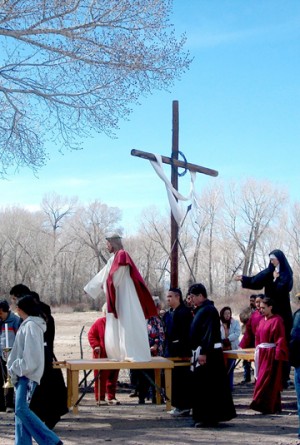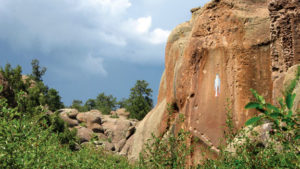by Forrest Whitman
Central Colorado is boating country. Boating on the Arkansas River is not only fun, it’s a huge business. 42% of the entire Colorado boating market uses the Arkansas. Several other big destinations such as the Taylor are in the region as well. Officials estimate that boaters put a whopping $62 mil into the economy of Central Colorado each year.
Folks often violently disagree about whether or not boaters have the legal right to float on Colorado waters. Last summer I heard a panel discussion featuring lawyers John Hill and Lori Potter on just those disputed legal points. Though it left the legal waters muddy, clarification may be on the way. This spring the Colorado General assembly is wrestling with a bill by Dist. 61 State Rep. Kathleen Curry. Her house bill 1188 has floated briskly along so far but with the usual legislative rapids ahead. The bill guarantees the right of people on guided river tours to float and touch the bottom of the river, even to portage if necessary. But will her bill solve our problems?
Lawyers in a Trespass Fight
Until now, boaters have at least felt safe from being cited for criminal trespass (if no one touched the bottom) under a ruling by the Attorney General. “Wrong!” Counselor John Hill stated flatly last summer. He thinks Attorney General Duane Woodard was dead wrong about criminal trespass. Woodard based his ruling on the definition of “premises” in state law. He didn’t see the water itself as actual premises. To add to the confusion, in 2001 a Gunnison court ruled that the premises definition cited by Woodward in criminal trespass is not a defense in a suit for civil trespass. Counselor Hill says Woodard’s ruling offers no bailing bucket to those boaters he goes after for civil trespass.
Lawyers Wade in Deep Water
Attorney Lori Potter pointed out last summer that in some states there is a clear right to float. Utah is an example of that. But, she reminds us, things in Colorado are never clear and sometimes get ugly. In Grand County a boater stepped onto the river bottom and was arrested for trespass. Other boaters have encountered barbed wire strung across rivers and in a couple of extreme cases boaters have been given warning shots for “trespassing.” She puzzles why 30 years ago the Colorado Supreme Court ruled that it is criminal trespass for boaters to touch the riverbed or banks in a privately owned segment of non-navigable river. However, the law being the law, every other ruling has directly countered that 30-year-old ruling.
Representative Curry’s bill would clear up all of that ambiguity for river guides. Under her bill, guided trips could touch river bottom and banks and even portage around obstacles. But, her bill does nothing for the rights of ordinary canoe paddlers, private boaters or an innocent fisherman floating down the stream, not to mention river guides licensed after 2010.
One Lawyer Refuses to Bail
John Hill is well known for representing landowners who do not cotton to river rafters. Currently he represents “Wilder on the Taylor,” a huge multi-million dollar second home development managed by a Texas development firm called Jackson-Shaw. Counselor Hill concedes that if rivers like the Taylor were navigable under federal law he wouldn’t have a case. But, he says, few Colorado rivers are a “continuous navigable interstate waterway.” Unless a river meets that criterion it’s fair game for the civil and possibly criminal trespass actions he plans to vigorously pursue. Even if the legislature passes the Curry bill the state is liable for damages in his view. He’s ready for lots of tough litigation ahead.
Some Boaters say, “Float Or Die”
Last summer Greg Felt (co-owner of ArkAnglers Fly Fishing in Salida) says he’d rather die than give up his right to float. He laments that despite the fact the state licenses river guides and the federal government permits individual rivers, boaters still paddle under the legal cloud of civil trespass. Last summer he asked, “Do boaters have to become lawyers?” Greg tells some hair-raising tales, including being “sighted in” by a rifleman (who didn’t shoot). For now he’s going to keep floating, he says, no matter what. Said he, it’s “float or die.”
Gov. Gilpin would Enjoy watching this River Fight
I enjoy re-enacting our first Territorial Governor, William Gilpin, at county fairs and such.
When it comes to rivers, Gilpin is crystal clear and so was our first territorial legislature. They based their river law on the water doctrine set up even before there was a territorial government. That law was enacted right along with Colorado’s basic water law of “first in use, first in right” by the Territory of Jefferson.
Gilpin was ever the mystic visionary. He based his river doctrine on the abundant universe he saw about him, including abundant water. He foretold an unlimited supply of river water and unlimited transportation thereon. What else could be true in our blessed Colorado territory? Suffice it to say he applied his view of river law to the 1.5 million acres of San Luis Valley land and miles and miles of streams he purchased from Charles Beaubien. As he assured us the “extra legal” Territory of Jefferson, and later the Colorado Territorial Assembly, wasn’t about to abridge the right to float. Laws gets worked out anew in each generation and river law is no exception. Gilpin had great faith in the wisdom of “the Great Coloradoan people” to do just that. If we ever do guarantee a right to float old William Gilpin will be smiling down from the golden dome in Denver.
Forrest Whitman claims no rafting experience, but is on the two Colorado County Commissioner’s Committees which are debating the Curry-Hodge rafting bill.

